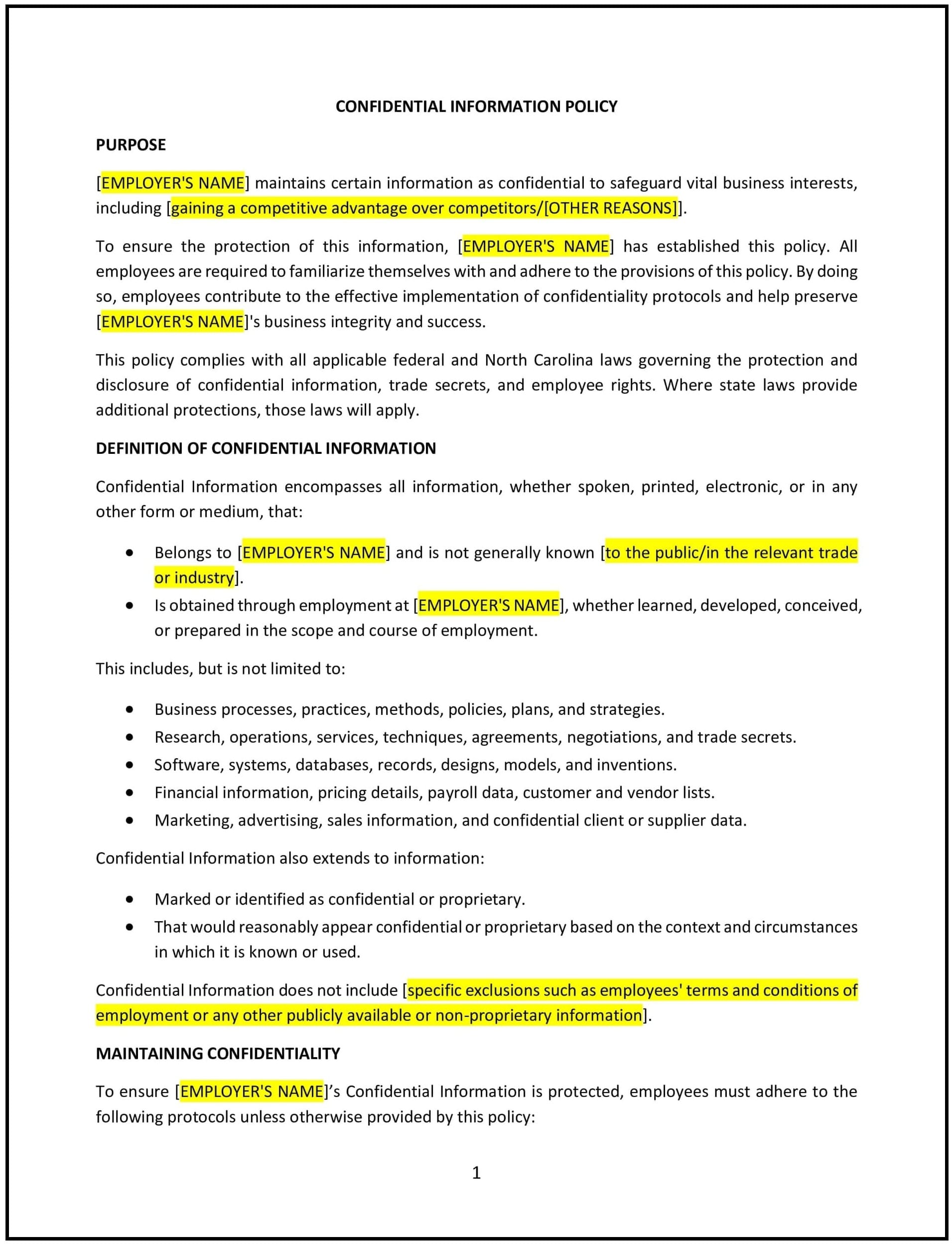Confidential information policy (North Carolina): Free template
Got contracts to review? While you're here for policies, let Cobrief make contract review effortless—start your free review now.

Customize this template for free
Confidential information policy (North Carolina)
A confidential information policy helps North Carolina businesses protect sensitive data, including proprietary information, trade secrets, and customer data, from unauthorized disclosure or use. This policy outlines the types of information considered confidential, the responsibilities of employees to protect that information, and the procedures for handling confidential data.
By adopting this policy, businesses can safeguard intellectual property, maintain compliance with privacy laws, and minimize the risk of data breaches or leaks.
How to use this confidential information policy (North Carolina)
- Define confidential information: Clearly outline what constitutes confidential information, including trade secrets, business plans, financial data, client information, and any other sensitive material.
- Set access controls: Specify who is authorized to access confidential information and under what circumstances. Limit access to those who need it for their job functions.
- Provide guidelines for handling confidential information: Set rules for how confidential information should be stored, transmitted, and disposed of to prevent unauthorized access.
- Address confidentiality agreements: Ensure that employees, contractors, and third-party vendors sign confidentiality agreements that outline their obligations to protect company information.
- Reflect North Carolina-specific considerations: Ensure the policy aligns with North Carolina’s privacy laws, as well as federal regulations such as the Health Insurance Portability and Accountability Act (HIPAA) for healthcare companies.
Benefits of using this confidential information policy (North Carolina)
This policy provides several benefits for North Carolina businesses:
- Protects intellectual property: Ensures that sensitive company data, including trade secrets and proprietary information, is safeguarded from unauthorized use or disclosure.
- Reduces legal risks: By protecting confidential information, businesses can avoid potential lawsuits, regulatory fines, and damage to their reputation.
- Increases trust with clients: A strong confidentiality policy enhances client confidence in the business’s ability to protect their personal and sensitive data.
- Promotes employee responsibility: Clearly defined responsibilities for handling confidential information help employees understand the importance of data protection and their role in maintaining confidentiality.
- Ensures regulatory compliance: The policy ensures that the business adheres to state and federal regulations related to data privacy, including North Carolina’s laws on personal information protection.
Tips for using this confidential information policy (North Carolina)
- Communicate the policy clearly: Ensure that all employees are aware of the importance of confidentiality and the specific guidelines for handling sensitive data.
- Provide training: Offer regular training on the secure handling of confidential information, including how to recognize and protect sensitive data.
- Enforce access controls: Regularly review access to confidential information and ensure that only authorized personnel have access to sensitive data.
- Monitor compliance: Regularly audit the handling of confidential information and take corrective action if any violations are detected.
- Review the policy periodically: Update the policy to ensure it remains in line with North Carolina’s laws and any changes in industry standards or company practices.